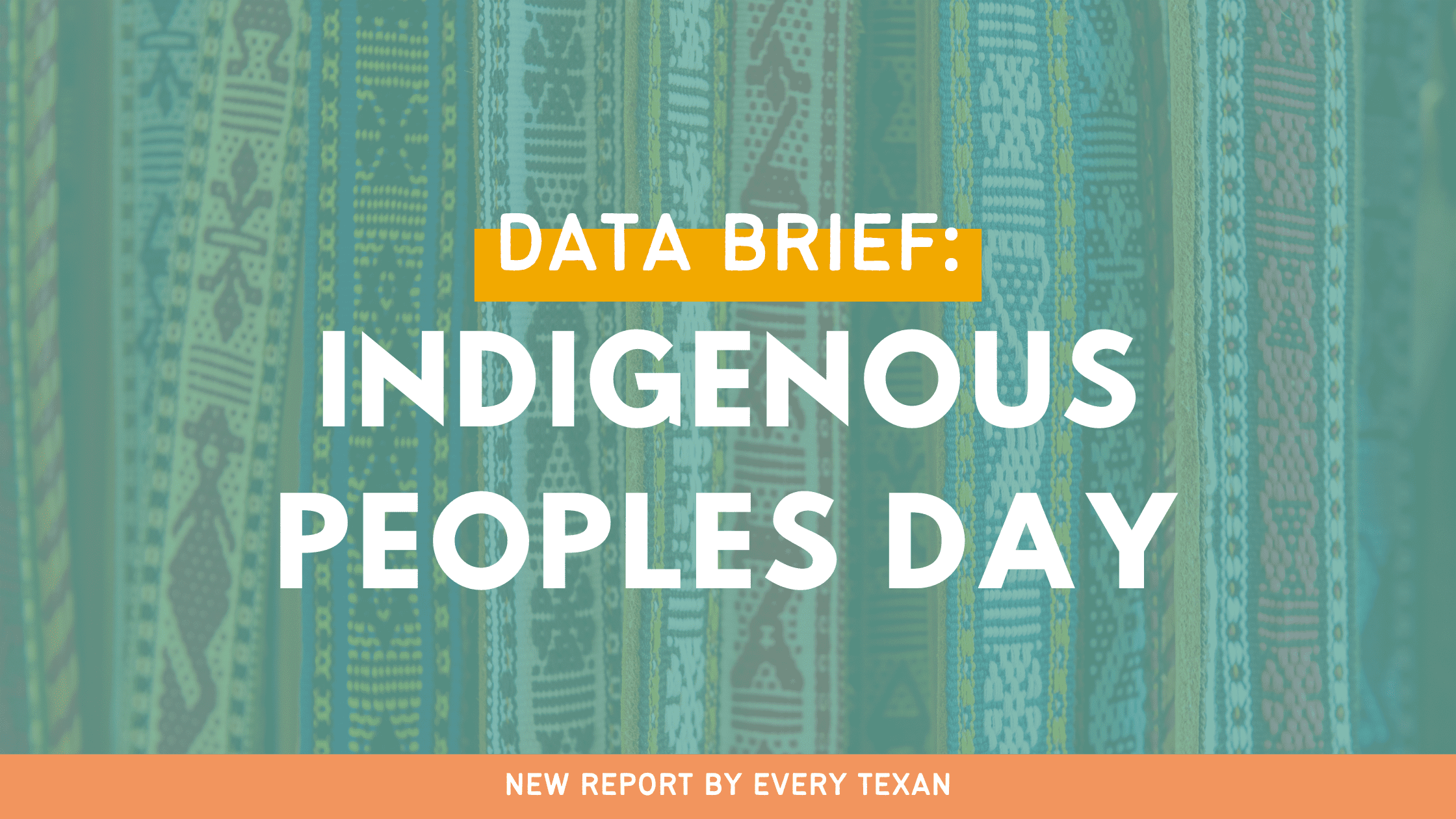We celebrate and honor the past, present, and future contributions and lives of Indigenous People in Texas and across the nation on Indigenous Peoples Day. Newly released data from the 2021 American Community Survey (ACS) show that Texans who identify as American Indian or Alaska Native (AI/AN) alone or in combination with other races make up 3% of our state’s population. Overall, 515,114 Texans identified as AI/AN alone in the 2020 Census, making up 1% of our state’s population.
In the 2020 Census, 794,062 Texans identified as AI/AN alone or in combination with other races. This is over twice the number of Texans who identified as AI/AN in the 2010 Census (315,264 people), a 152% increase.
Who Are AI/AN Texans?
AI/AN Texans are diverse and come from many different cultures and backgrounds. Census data show that AI/AN Texans identify with over 40 different tribes. But it is important to note that limited Census data does not completely encapsulate the identities of all AI/AN Texans, and thus obscures the lived experiences of individuals.
There are three federally recognized Native American tribes in Texas: the Alabama-Coushatta Tribe of Texas, the Kickapoo Traditional Tribe of Texas, and the Ysleta del Sur Pueblo of Texas. American Indian reservations and trust land areas make up 12,362 acres of land in Texas.
The median age of the AI/AN population in Texas is 33.7 years. Most AI/AN Texans are working age (18-64 years), and one in four (25%) AI/AN Texans are under 18 years old. AI/AN Texans make up 1% of LGBT (lesbian, gay, bisexual, and transgender) Texans.
AI/AN Texans have varying levels of educational attainment, income, and employment. One in five (21%) AI/AN Texans (age 25 and over) have a Bachelor’s degree. The median income for AI/AN Texans is $61,896 (in 2021 inflation-adjusted dollars), compared to the statewide median income of $66,963. One in five (20%) employed AI/AN Texans (16 years and older) work in the educational services, health care, and social assistance industries.
View more data about the diverse AI/AN population in Texas here.
Data Disaggregation is an Important Policy Priority
AI/AN Texans deserve better representation when it comes to data collection and disaggregation. Data is directly tied to how much funding and support communities receive from government programs, but AI/AN people continue to be undercounted due to federal and state agencies and policies that leave AI/AN people out from data collection, reporting and analysis, and media campaigns. For example, the Department of Housing and Urban Development uses Census data to distribute about $650 million annually to more than 580 tribes through the Indian Housing Block Grant, even though AI/AN people were undercounted by 6% in the 2020 Census. Data collection efforts must evolve to be more representative of the diverse identities and lived experiences of all Texans.
Policy recommendations developed by the National Congress of American Indians (NCAI) Policy Research Center in collaboration with other civil rights organizations are available here.
Learn more about programs that address the needs and aspirations of Indigenous communities in San Antonio via American Indians in Texas at the Spanish Colonial Missions.
